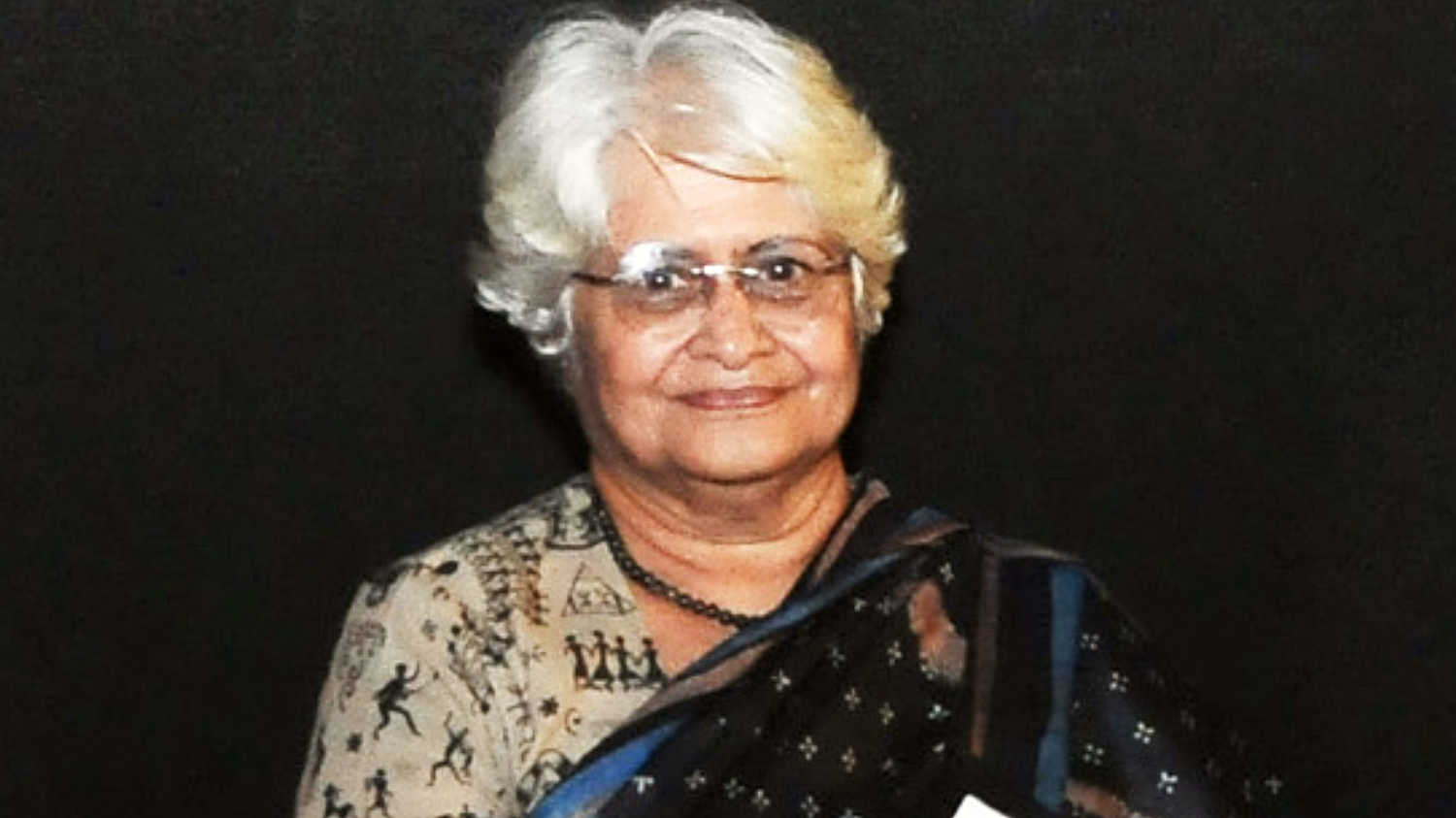The National award-winning director, who died this morning in Pune at 78, always took up stories through which she wished to send social messages and did so without resorting to preachiness.
Sumitra Bhave (1943–2021): Filmmaker who continued her social work through cinema
Mumbai - 19 Apr 2021 19:26 IST


Keyur Seta
The word ‘intellectual’ is bandied about rather loosely these days, but one person who deserved the title was writer and filmmaker Sumitra Bhave. It would be no overstatement to say that in her death earlier today from asthma-related complications Marathi cinema lost a filmmaker who was the conscience-keeper of her times.
Born on 12 January 1943 in Pune, Bhave had an impressive academic record. Like many other famous people from the city in those days, she enrolled in the iconic Fergusson College for her graduation. She then acquired a master's degree in political science and sociology from Pune university.
Following this, she enrolled at the Tata Institute of Social Sciences in Mumbai and received a second master's degree in political science and sociology. Thereafter she got involved in different types of social work and also taught at the Karve Institute of Social Service in Pune. She also directed street plays on burning social issues.

Her first stint with the media came as a Marathi newsreader for All India Radio. It was her social work that paved the way for her filmmaking career. Bhave made her first short docu-drama, titled Bai, about a housewife from the slums and her daily battle for survival. She continued making many other documentaries and short films dealing with a number of social issues.
The turning point in her career, nay life, came when she associated with filmmaker Sunil Sukthankar for the short film Chakori in 1994. The film, about how the life of a village girl changes when she secretly does something that was considered taboo for girls — ride a bicycle — was well-liked and won several awards. And the bond between Bhave and Sukthankar was sealed.
The duo continued to make films together till 2019. That was the year when Bhave went solo for just one movie, Dithee (2019). Like her previous efforts with Sukthankar, the project also won accolades at various festivals.
Bhave and Sukthankar's first feature film Doghi (1996) tackled the topic of a young woman (Renuka Daftardar) forced into prostitution and the dishonour she faces from her own mother. The next, Zindagi Zindabad (2000), their only Hindi film, dealt with AIDS. Their films largely portrayed the dilemma of an individual with respect to his or her surroundings over which he or she has little or no control.

Devrai (2004) saw a man (Atul Kulkarni) turning schizophrenic after his relationships with the people around him change for the worse. Nital (2006) explored a girl’s struggle with vitiligo, an affliction of the skin. This, incidentally, was the only film in which the great playwright Vijay Tendulkar acted.
Ek Cup Chya (2009) showed how life changes for a bus conductor working with the state transport corporation after he receives an astronomical electricity bill. Many believe, wrongly, that the Shahid Kapoor-starrer Batti Gul Meter Chalu (2018, Hindi) was the first Indian film to explore the issue of faulty power bills. Bhave and Sukthankar had tackled the subject a decade earlier.
The duo depicted an old man’s struggle with Alzheimer’s in Astu: So Be it (2014). They then threw light on the issue of depression and suicide among youngsters in Kaasav (2017) and the question of which home should a married woman consider her own in Welcome Home (2019).
The most impressive aspect of Bhave and Sukthankar’s films was that their makers never bothered about the trends prevailing in Marathi cinema at any given point in time. Nor did they choose subjects with the box office in mind. They selected and worked on stories that appealed to them and through which they wished to send relevant messages.
Yet, their films were never preachy. The message was conveyed clearly through storytelling and visuals. For example, the suicidal and depressed Manav (Alok Rajwade) finally comes to grips with life after he is cared for by Janaki (Iravati Harshe) and the filmmakers linked this coming-of-age progression to the lives of sea turtles which nest and lay their eggs on the beaches of Maharashtra.
Two directors helming a film together can lead to interesting experiences. In the case of Bhave and Sukthankar, they had clearly chalked out their responsibilities. Touching upon this topic, Bhave once told Cinestaan in an exclusive interview, “I do the script, story and screenplay and dictate these to Sunil who writes them out. I do the casting and the art and costumes while Sunil is in charge of the technical crew, the actors and the liaison. Sunil also looks after post-production, music and lyrics. In fact, he has composed the background score for Kaasav and written some lyrics. We do not use any make-up for any of our actors and they happily toe the line.”
After winning so many accolades, one regret remained in Bhave’s life. In the same interview, she said, “Though our films have won several international awards, 12 National awards, several national-level awards, more than 45 state awards and several state-level awards, most Indians have not seen any of them. Even when our films are released well, they mostly flounder at the box office. Our films never get the right kind of promotion and we get a very bad deal in distribution as well.”
This was especially evident during the release of Kaasav. Despite the awards and appreciation, the film's theatrical run in Mumbai was restricted to a single show per day. Hearteningly, however, public demand ensured that Kaasav got more than 30 shows in the second week and the drama went on to do fair business across the state.
Maybe Sumitra Bhave is one of those, like the Urdu poet Jaun Elia, whose works gain currency and a dedicated following after their passing. One can only hope.


